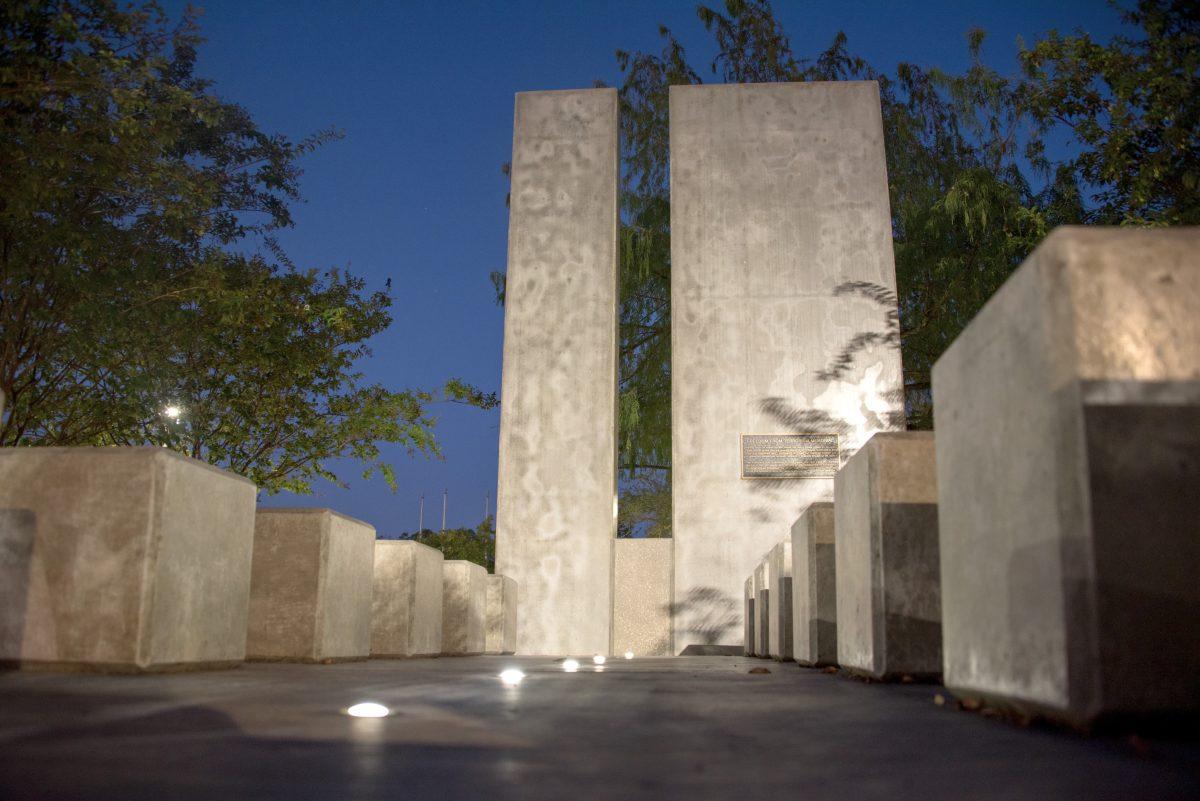On Sept. 11, 2001, the United States of America suffered the single largest attack on American soil since the Pearl Harbor attack in 1941, with a death toll of nearly 3,000 Americans spanning across 3 states. To this day, 9/11 remains one of the most devastating dates in American history, with a hand of destruction so powerful that nearly every living American was affected.
Sixteen years after that traumatic day, many Americans can still recall exactly where they were or what they were doing on the day of 9/11.
KBTX news anchor and executive producer Rusty Surette was working his second day as the five o’clock anchor for the Lake Charles, Louisiana news station, KVHP, when news of the attacks rang through.
“We really didn’t think a whole lot of [the initial attack]. It was just kind of a thing we were keeping an eye on,” Surette said. “But then the second one hit.”
Surette said he remembers the overwhelming silence that encompassed the entire room when footage of a second plane hitting the South Tower of the World Trade Center was broadcast live on NBC.
“This was one of the only few times in my 23-year career that a newsroom has ever been silent,” Surette said. “We just stood there for about five minutes watching the TV and I don’t remember anybody saying anything.”
Moments after watching the second attack take place, Surette said he remembers police and fire department dispatches ringing into the newsroom signaling, ‘Attention all units: The United States is under attack.’ Surette said he recalled the immediate reaction by his news team to gather all information possible to be relayed out to viewers.
“That will forever be the day that changed America,” Surette said. “Even so many miles and so many states away from where it actually happened, it just had a ripple effect on the country.”
Doctoral student and Texas A&M communication professor Paige Gloeckner was a student in her fourth grade class in Crawford, Texas when news of the attacks reached her elementary school. George W. Bush’s second headquarters, Prairie Chapel Ranch, was also located in Crawford at the time of the attacks, and Gloeckner said she remembers the large police and secret service presence as her school was evacuated.
“At first it was more curiosity of what had happened,” Gloeckner said. “And then later on it became kind of, ‘Oh my god, what happened? This is so sad.’”
Gloeckner said she remembers being picked up from school by her mother and having the events explained as reality began to set in.
“It was odd as a nine year-old, you don’t really know what’s going on,” Gloeckner said.
“But as I started to become more older and educated, I started to realize more of the global effects that [9/11] had.”
While many Americans still recall every detail of those catastrophic events, there are also a large number of younger Americans who may not remember anything from that tragic day.
Yet still, the impact of 9/11 can be seen in everyday American life.
Wildlife and Fisheries junior Alaya Keane said she does not remember anything from the day of the September 11, 2001, attacks, however her family was sure to explain the significance of the attacks to her.
“Coming from a military family and having your dad sit you down and try to explain what a terrorist attack is and you’re just trying to understand it and wrap your mind around it … it’s kind of weird,” Keane said.
No matter how much time may pass since 2001, the U.S. will continue unite in the face of adversity and remind the coming generations of the 9/11 attacks.
“I think it’s really important for us to kind of sit back and reflect on that,” Keane said. “Because, even if we don’t remember it, our parents do, our grandparents do. It’s not affecting some of us directly but it definitely still affects our society today.”
Remembering 9/11
September 10, 2017
Photo by Photo by Cassie Stricker
The ‘Freedom from Terrorism Memorial,’ designed by four Texas A&M architecture students, is dedicated to the lives lost on September 11, 2011. It also memorializes those who lost their lives during the war on terrorism. Located at Trigon by the Quad.
0
Donate to The Battalion
$2790
$5000
Contributed
Our Goal
Your donation will support the student journalists of Texas A&M University - College Station. Your contribution will allow us to purchase equipment and cover our annual website hosting costs, in addition to paying freelance staffers for their work, travel costs for coverage and more!
More to Discover










